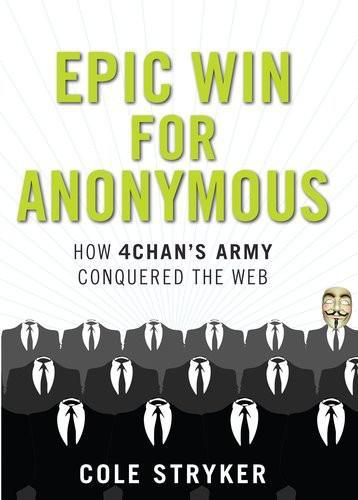
Epic Win for Anonymous: How 4chan's Army Conquered the Web
by
Cole Stryker
Published 14 Jun 2011
In August 2006, moot posted a message to /b/, declaring that anyone who posted illegal content (e.g., child pornography, personal information, and raid-related calls to action) would be banned permanently from 4chan, and anyone who posted within illicit discussion threads would be banned for two weeks. This led many users leave 4chan for other chan boards. It has gone down in chan lore as /b/day. 4chan’s Eternal September Moment If one had to pick an eternal September period for 4chan, it began in 2007. That was the year of lolcats and Tay “Chocolate Rain” Zonday. Most importantly, it was the year of the Internet Hate Machine. A Los Angeles Fox affiliate put together a breathless exposé on Anonymous. It starts off like this: Anonymous.
…
#3 would probably be any attempt made to paint them as politically one way or another, since it is quite obviously apolitical Housh recently gave a speech on the steps of New York’s City Hall with a handful of other Anons, journalists whom he feels are responsible for the media climate marked by lazy and fearmongering characterizations of Anonymous. Housh is hardly the angst-ridden teenager that many journalists would like you to believe makes up Anonymous. He’s in his mid-30s, and he’s been online since ‘93, when he used a text browser. He remembers Usenet’s eternal September, which he, perhaps jokingly, calls “the worst thing that ever happened to the Internet.” Usenet before eternal september? Very few stupid questions, mostly just good chat and sharing interesting files. it was quite a good community of pretty intelligent people Like the folks I spoke with at the WELL, Housh insists that in the early days the web wasn’t a chaotic Wild West.
…
Given that the WELL was founded by optimistic hippies, I assumed these geeks on the forefront of technology would have high hopes for their hobby, but I was surprised to find the opposite. “I had no idea the Internet would expand to the scale it is today. Absolutely no idea,” says Figallo. The Eternal September Throughout the late ’80s and early ’90s, universities granted their students access to Usenet and other BBSes. Every September these online communities would be flooded with new users who hadn’t learned the lingo or the etiquette. The veterans would naturally look down on these noobs with disdain, and dreaded the coming of September.
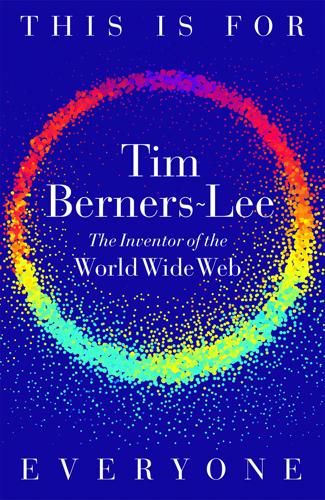
This Is for Everyone: The Captivating Memoir From the Inventor of the World Wide Web
by
Tim Berners-Lee
Published 8 Sep 2025
Each September, a freshman class would arrive on campuses and be granted internet access, and there would be a rocky adjustment period as the new arrivals adjusted to these informal rules. The arrival of the public, via AOL in 1994, destroyed netiquette for ever, replacing it with something far more raucous, funny and crude. Seasoned internet users called this change the ‘Eternal September’. While some computer scientists objected to Eternal September, it was fantastic for the web. I had deliberately designed my protocols and creative tools to be simple to use, and a great many new sites appeared, often coded by hand in HTML, sometimes by users who’d only just learned how to use a computer. These delightful amateur sites weren’t bound by academic conventions and often showed remarkable creativity.
…
Nash ref1, ref2 digital commons ref1 digital divide ref1 Digital Equipment Corporation (DEC) ref1 digital signatures ref1 dishwasher poem (GPT-4) ref1 disinformation ref1, ref2 Ditchley Foundation ref1, ref2, ref3, ref4 DNS (Domain Name System) ref1, ref2, ref3 documentation systems ref1, ref2 documents compared to data ref1 doomscrolling ref1, ref2 dot-com bubble ref1, ref2, ref3 dot-matrix printers ref1 Doubleclick ref1 Dougherty, Dale ref1 Dow Jones ref1 Dropbox ref1 e-commerce ref1 E-Trade ref1 East Sheen, London ref1 ECMAScript ref1 Edelman, Richard ref1 Edelman Trust Barometer ref1 Edge ref1 Egypt ref1 eigenvectors 151n Elbaz, Gil ref1 electromagnets ref1 Electronic Frontier Foundation (EFF) ref1, ref2, ref3 Elizabeth II ref1, ref2, ref3, ref4 email ref1, ref2 Emanuel School ref1, ref2, ref3 encryption ref1, ref2, ref3, ref4 engagement, algorithms ref1, ref2, ref3, ref4 Engelbart, Douglas ref1, ref2 Enigma cipher ref1 ‘Enquire-within’ program ref1, ref2, ref3 Enquire Within Upon Everything ref1 equality ref1 Equifax ref1 error codes ref1 Erwise ref1 Eternal September ref1 Ethiopia ref1 Euler’s formula ref1 European Commission ref1 European Computer Manufacturers Association (ECMA) ref1 European Council for Nuclear Research see CERN European Semiconductor Equipment Company ref1 European Union Brexit ref1 GDPR (General Data Protection Regulation) ref1, ref2 Ex Machina (film, 2014) ref1 Excite ref1 Expedia ref1 Facebook advertisements ref1 Africa ref1 AI training ref1 Arab Spring ref1 collaborative filtering and polarization ref1, ref2 data breaches ref1 data ownership ref1 microtargeting ref1 users as the product ref1, ref2 facts, encoding ref1, ref2 farming ref1 Fediverse ref1, ref2, ref3 Fermilab ref1 Ferranti ref1, ref2, ref3 Ferranti, Basil de ref1 File Transfer Protocol (FTP) ref1, ref2 Filo, David ref1 Finland ref1 Firefox ref1, ref2 First Parish Church, Lexington ref1 Flametree ref1 Flanders ref1, ref2 Fora ref1 Ford Foundation ref1 Forth (programming language) ref1 forums ref1 Foster, Norman ref1 free speech ref1 Freud, Lucien ref1 Friendster ref1 Fry, Stephen ref1 Gal, Yarin ref1 Gallaudet University ref1, ref2 garbage in, garbage out ref1 Gates, Bill ref1, ref2, ref3, ref4 GDPR (General Data Protection Regulation) ref1, ref2 GEC ref1 Gemini ref1 generalization ref1 Geneva ref1, ref2, ref3, ref4, ref5 Geneva Amateur Operatic Society (GAOS) ref1 genome-sequencing providers ref1 Geocities ref1 geospatial mapping ref1 Ghana ref1 Gifford, David ref1 GIFs ref1, ref2 Gilliat, Bruce ref1 Gilmore, John ref1 Gilyard-Beer, Peter ref1 Glasswing ref1, ref2 Global News Network (GNN) ref1 Gmail ref1 Go (game) ref1, ref2 Gods of Literature ref1, ref2 Goldstein, Jono ref1, ref2 Google AJAX ref1 anti-trust lawsuits ref1 Applied Semantics purchase ref1 China ref1 Chrome ref1 DeepMind ref1 Gemini ref1, ref2 Gmail ref1 Google Docs ref1 Google Maps ref1, ref2 Google Meet ref1 hosted web anniversary dinner ref1 HTML and WHATWG ref1 passkeys ref1 search functionality ref1, ref2 standards ref1 start-up ref1 transformers ref1 users as the product ref1 Web Index ref1 Zeitgeist network event ref1 Google Maps ref1, ref2 Gopher ref1, ref2 Gore, Al ref1, ref2, ref3, ref4 government data ref1, ref2, ref3 governments and Contract for the Web ref1, ref2, ref3 GPS data ref1, ref2 GPTs (Generative Pre-trained Transformers) ref1, ref2, ref3, ref4 GPUs (Graphical Processing Units) ref1 Grail ref1 graph structures ref1, ref2 Great Firewall of China ref1, ref2 Greif, Irene ref1 Grisham, John ref1 Grok AI ref1 Grundy, Frank ref1, ref2 hacktivism ref1 Hall, Justin ref1 Halonen, Tarja ref1 Hanamura, Wendy ref1 haptic touch ref1 Harari, Yuval Noah ref1, ref2 Hardin, Joseph ref1, ref2, ref3 Harris, Kamala ref1 Harris, Tristan ref1 Harrison, George ref1 Harvard Berkman Klein Center for Internet and Society ref1, ref2 Institute for Rebooting Social Media ref1 Hassabis, Demis ref1, ref2 Hawke, Sandro ref1 Helsinki ref1 Helsinki University of Technology ref1 Hendler, Jim ref1 Herzberg, Frederick ref1 Heywood, Jeremy ref1 Hickson, Ian (Hixie) ref1, ref2 hierarchies ref1 Higgins, Eliot ref1 Higgs boson ref1 Higgs, Peter ref1 Hinton, Geoffrey ref1 holiday bookings ref1, ref2 Home Depot ref1 home pages ref1 Hoogland, Walter ref1, ref2 Hoschka, Philipp ref1, ref2 HTML (Hypertext Markup Language) ref1, ref2, ref3, ref4, ref5, ref6 HTTP (Hypertext Transfer Protocol) ref1, ref2, ref3, ref4, ref5 HTTPS standard ref1 human first systems ref1 human rights ref1, ref2, ref3, ref4, ref5, ref6 see also civil liberties humans as social animals ref1 HyperCard ref1 hyperlinks ref1, ref2, ref3, ref4, ref5, ref6, ref7, ref8 hypertext ref1, ref2, ref3 see also HTML Hypertext ‘91 conference ref1 Hypertext ‘93 conference ref1 Ibargüen, Alberto ref1 IBM, Watson ref1 identity theft ref1 IETF (Internet Engineering Task Force) ref1, ref2, ref3 images GIFs ref1, ref2 IMG tag ref1 PNG (Portable Network Graphics) ref1 Imitation Game, The (film, 2014) ref1 ‘Imitation Game’ (Turing) ref1, ref2 inclusivity ref1, ref2 India ref1, ref2 indigenous communities, land rights ref1 Industrial Revolution ref1 Inflection.AI ref1 Infosys ref1 infrastructure evolution ref1 INRIA (National Institute for Research in Digital Science and Technology), France ref1, ref2 Inrupt ref1, ref2, ref3, ref4 Instagram ref1, ref2, ref3 Institute for Rebooting Social Media ref1 integrated circuits ref1 intellectual property rights ref1, ref2 intelligence agencies ref1, ref2 intention economy ref1, ref2, ref3, ref4 intercreativity ref1, ref2, ref3, ref4 International Standards Organization (ISO) ref1 internet Al Gore funding bill ref1, ref2 blackouts ref1 deep web ref1 early development ref1 early functionality ref1 free ethos ref1, ref2, ref3 Map of Everything ref1, ref2, ref3 protocols ref1, ref2 size ref1 universal access ref1, ref2 see also World Wide Web Internet Archive ref1, ref2 Internet Explorer ref1, ref2, ref3, ref4, ref5 internet service providers (ISPs) ref1, ref2, ref3 interoperability ref1, ref2, ref3, ref4, ref5 Intuit ref1 invisible pixels ref1 IP addresses ref1, ref2, ref3 iPhone ref1, ref2, ref3 Iran ref1 ITT ref1 Jambon, Jan ref1 Java ref1 JavaScript ref1, ref2, ref3 Jitsi ref1 Jobs, Steve ref1, ref2, ref3, ref4, ref5, ref6, ref7 Jones, Peter ref1 JScript ref1 JSTOR ref1 Justin’s Links from the Underground ref1, ref2 Kagame, Paul ref1 Kahle, Brewster ref1, ref2 Kahn, Bob ref1, ref2 Kapor, Mitch ref1 Keio University, Tokyo ref1 Kendall, Alex ref1 Kenya ref1 killer apps ref1 Kirk, Anna ref1 Kirk, Matthew ref1 Knight Foundation ref1 Kotok, Alan ref1 Krotoski, Aleks ref1 Kubrick, Stanley ref1 Kunz, Paul ref1 Kurzweil, Ray ref1 labelling reality or fakes ref1 land rights ref1 LANs (Local Area Networks) ref1 Larkin, Philip ref1 Lassila, Ora ref1 Last.fm ref1 Le Corbusier ref1 LeCun, Yann ref1 Legal Information Institute (LII) ref1, ref2 Legg, Shane ref1 legislation Data Use and Access Bill ref1 GDPR (General Data Protection Regulation) ref1, ref2 mobile phone spectrum ref1 open data ref1 Leighton, Tom ref1 Leith, Rosemary (wife) Berkman Klein Center for Internet and Society ref1 investments ref1 marriage to Tim ref1 sailing ref1, ref2 visits Beijing ref1 web anniversary speech ref1 Web Foundation ref1, ref2, ref3 Lenat, Doug ref1 Lessig, Lawrence ref1 Lewin, Daniel ref1 Li, Angel ref1 liability of hosts ref1 Library of Alexandria ref1, ref2 Library of Congress ref1 LibreOffice ref1 Libya ref1 Lie, Hakon ref1, ref2, ref3 lifeloggers ref1, ref2 lists ref1 Literature, Gods of ref1, ref2 LLMs (Large Language Models) ref1, ref2, ref3, ref4 LocalFirst Community ref1 location data ref1 logic agents ref1, ref2 logic gates ref1, ref2, ref3 London 2012 Olympics ref1, ref2 Lovett, Adrian ref1 Lycos ref1 Lynx ref1 Ma, Jack ref1, ref2 Mac OS X ref1 MacArthur Fellowship ref1 McBryan, Oliver ref1 McCahill, Mark ref1 McCartney, Paul ref1, ref2 McCourt, Frank ref1 machine learning collaborative filtering ref1 neural networks ref1, ref2 see also artificial intelligence machine translation ref1 McManus, Richard ref1 MacWWW ref1 Malamud, Carl ref1 Mandelbrot ref1 maps geospatial mapping ref1 Google Maps ref1, ref2 Map of Everything on the Internet ref1, ref2, ref3 OpenStreetMap ref1, ref2 World Wide Web Middle Earth ref1 Marcos, Bongbong ref1 Markey, Ed ref1, ref2 Martin, George R.
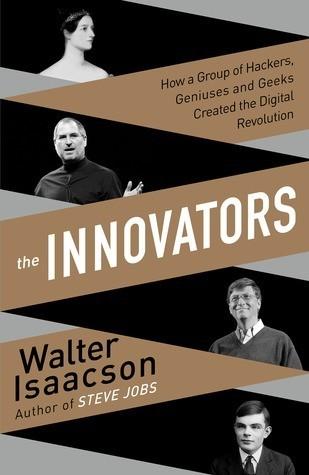
The Innovators: How a Group of Inventors, Hackers, Geniuses and Geeks Created the Digital Revolution
by
Walter Isaacson
Published 6 Oct 2014
Kimsey the bar owner could never quite get why healthy people would spend their Saturday nights in chat rooms and on bulletin boards. “Admit it, don’t you think it’s all horseshit?” he would ask Case half jokingly.36 Case would shake his head. He knew that there was a pony in it. AL GORE AND THE ETERNAL SEPTEMBER Online services such as AOL developed independently of the Internet. An entanglement of laws, regulations, traditions, and practices made it impossible for commercial companies to offer direct Internet access to ordinary folks who were not connected to an educational or research institution.
…
It began in earnest when AOL, following the lead of a smaller competitor named Delphi, opened a portal in September 1993 to allow its members access to the newsgroups and bulletin boards of the Internet. In Internet lore, the deluge was called, especially by contemptuous veteran netizens, the Eternal September. The name referred to the fact that every September a new wave of freshmen would enter universities and, from their campus networks, get access to the Internet. Their postings tended to be annoying at first, but within weeks most had acquired enough netiquette to assimilate into the Internet culture.
…
“September 1993 will go down in net.history as the September that never ended,” an Internet hand named Dave Fischer posted in January 1994.38 A newsgroup sprang up named alt.aol-sucks, where old-timers posted their diatribes. The AOL interlopers, read one, “couldn’t get a clue if they stood in a clue field in clue mating season, dressed as a clue, and drenched with clue pheromones.”39 In fact, the Eternal September’s democratization of the Internet was a good thing, but it took a while for veterans to appreciate this. This opening up of the Internet, which paved the way for an astonishing era of innovation, did not happen by chance. It was the result of government policies, carefully crafted in a thoughtful and bipartisan atmosphere, that assured America’s lead in building an information-age economy.
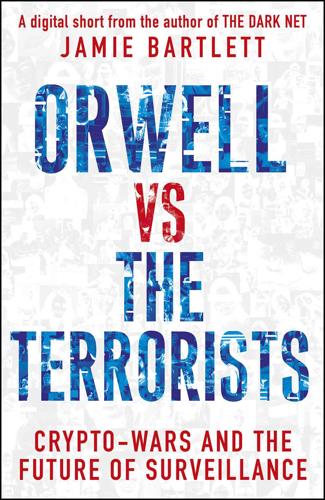
Orwell Versus the Terrorists: A Digital Short
by
Jamie Bartlett
Published 12 Feb 2015
* * * fn1 In 2010 Tor was awarded the Free Software Foundation’s Award for Projects of Social Benefit, in part for the service it provides for whistleblowers, human-rights campaigners and activists in dissident movements. fn2 September 1993, the month America On-Line started to offer its subscribers access to Usenet, is etched into internet folklore as ‘the eternal September’, when newcomers logged on to the internet en masse. This ebook is copyright material and must not be copied, reproduced, transferred, distributed, leased, licensed or publicly performed or used in any way except as specifically permitted in writing by the publishers, as allowed under the terms and conditions under which it was purchased or as strictly permitted by applicable copyright law.
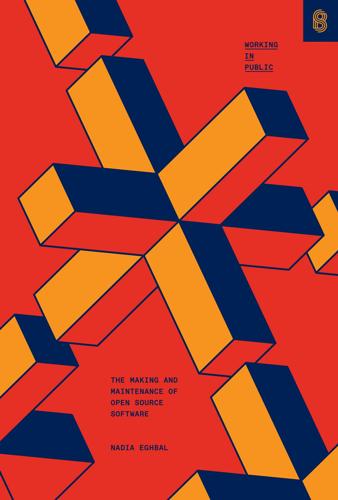
Working in Public: The Making and Maintenance of Open Source Software
by
Nadia Eghbal
Published 3 Aug 2020
Kraut and Resnick observe that a community needs to “protect itself from the potentially damaging actions” of newcomers in order to survive,127 since newcomers can destabilize preexisting social norms: “Because newcomers have not yet developed commitment to the group and have not yet learned how the group operates, it is rational for established group members to distrust them.”128 The newcomer effect is also known as the “Eternal September” problem, a term coined by members of the early online community Usenet, which experienced an influx of newcomers every September due to new students getting access for the first time. But once America Online (a sort of early highway system itself) began offering access to Usenet, the service provider exposed the community to a constant stream of new users, creating an “eternal September.” Kraut and Resnick further suggest that successful online communities need to “designate formal sanctioning rules so that those imposing sanctions have legitimacy,” noting that this role typically falls upon moderators or administrators, who are “less likely to generate drama or retaliation than the same message coming from someone without a formal role.”129 Today, however, these dynamics seem to be reversed, if anything.
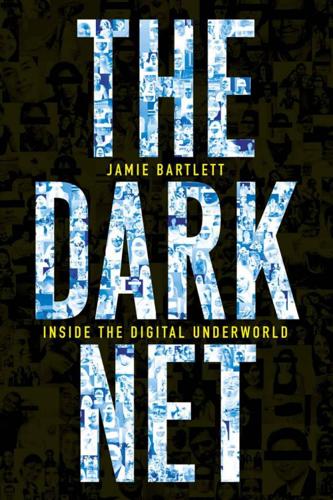
The Dark Net
by
Jamie Bartlett
Published 20 Aug 2014
* * * fn1 In 2010 Tor was awarded the Free Software Foundation’s Award for Projects of Social Benefit, in part for the service it provides for whistleblowers, human-rights campaigners and activists in dissident movements. fn2 September 1993, the month America On-Line started to offer its subscribers access to Usenet, is etched into internet folklore as ‘the eternal September’, when newcomers logged on to the internet en masse. Chapter 1 Unmasking the Trolls ‘At the top of the tree of life there isn’t love: there is lulz.’ Anonymous A Life Ruin ‘HI /B/!’ READ the small placard that Sarah held to her semi-naked body. ‘7 August 2013, 9.35 p.m.’ It was an announcement to the hundreds – thousands, perhaps – of anonymous users logged on to the infamous ‘/b/’ board on the image-sharing website 4chan that she was ready to ‘cam’.
…
p.6 ‘In July 1973, Peter Kirstein . . .’ Kirstein, P.T., ‘Early Experiences with the ARPANET and INTERNET in the UK’. This new international version of the Arpanet was being called informally at the time the ‘Internetwork’, and was shortened to the ‘Internet’ in 1974. p.6 ‘September 1993, the date . . .’ One Usenet group – www.eternal-september.org – gives the date, as of writing, as September 7247, 1993. Further information about ‘the September that never ends’, in Dery, M., Escape Velocity, p.5. p.7 ‘Leading psychologists of the day . . .’ Turkle, S., Life on the Screen. p.7 ‘Parents panicked about children . . .’ http://textfiles.com/bbs/fever.
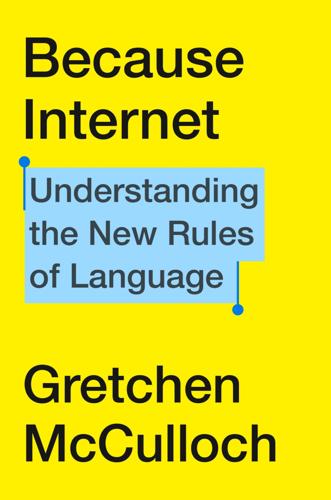
Because Internet: Understanding the New Rules of Language
by
Gretchen McCulloch
Published 22 Jul 2019
AOL began sending out internet connection CDs in the mail and thus, according to the book Net.wars, in the space of a single year “unleashed its one million users onto the Net in what was then the largest single block of new users the Net had ever been asked to absorb.” Existing netizens were unable to fully acculturate this influx and were Not Pleased by the results, dubbing the period thereafter Eternal September. Although counter-memetics may not have become quite the noble cause Godwin envisioned, the idea of memes—the meme of memes, if you will—certainly did spread and mutate online. A meme in the internet sense isn’t just something popular, a video or image or phrase that goes viral. It’s something that’s remade and recombined, spreading as an atom of internet culture.
…
Weird cultural artifacts spreading through a whole bunch of people deciding to replicate them is older than the internet: in the book Memes in Digital Culture, Limor Shifman points to “Kilroy Was Here” (a graffiti sketch of a big-nosed man looking over a wall that became popular during World War II) as an example of a pre-internet meme. The new part is the connection of the name “meme” with the kind of cultural replication that happens on the internet. All the way back to Godwin’s Law and Eternal September, making and sharing memes is about policing what’s in and what’s out of internet culture. This became difficult as aspects of internet culture changed, especially the relationship between cultural and technical fluency. Like how the first wave of Internet People conflated knowledge of programming jargon and internet slang, the early waves of meme creators felt that there was a link between knowing the technical tools required to make memes and understanding the subcultures in which they fit.
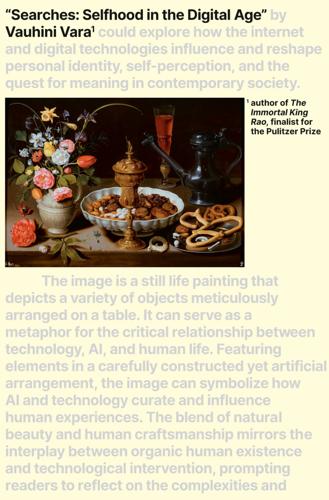
Searches: Selfhood in the Digital Age
by
Vauhini Vara
Published 8 Apr 2025
It was in this context that when the modem’s shrieking gave way to silence, and Lily introduced me to my first America Online chat room, in which strangers from all over the world could meet other strangers, each human being manifesting on-screen only as their chosen screen name, everyone’s messages jostling democratically against everyone else’s in the same index card–sized window, I found myself utterly enchanted. This was, I thought, the most exciting invention I had seen in my life. This period had a name: the Eternal September. In the formative years of the internet, in the 1980s and early 1990s, old-school internet users who hung out on message boards would get irritated every September when freshmen showed up at universities, received their campus-based internet accounts for the first time, and flooded the message boards.
…
In 1989, the British computer scientist Tim Berners-Lee, working at a European institution called CERN, had invented the World Wide Web, a global information system that involved using browsers to open hyperlinked documents. Then, in April 1993, CERN decided to make its World Wide Web source code freely available. Suddenly internet traffic swelled, with companies like America Online coming along to capitalize on it. “The thing that brought about the ‘Eternal September’ was the availability of commercial Internet access,” Furr told me. For a fee, these companies would connect you to the internet through your phone line. If someone else in your house tried to make a call while you were online, you’d get disconnected without warning. America Online started a direct-mail campaign sending floppy disks and CDs to people’s homes, offering some free hours of internet use if people signed up.
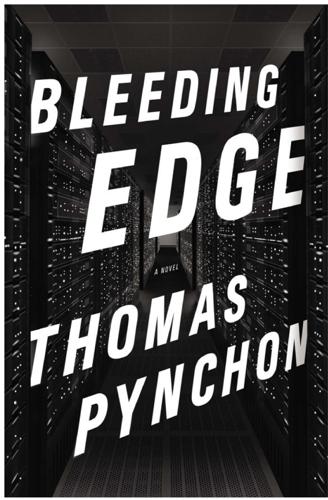
Bleeding Edge: A Novel
by
Thomas Pynchon
Published 16 Sep 2013
“You lucked out, this is the last call I was planning to take on this thing.” “Changing your carrier service?” “Shitcanning the instrument. I think there’s a tracking chip on it.” “Lester, I’ve come across something kind of serious, we should meet. Leave your cell phone at home.” She can tell from his breathing that he knows what it is. • • • ETERNAL SEPTEMBER, dating from the high nineties, is a disused techies’ saloon tucked away between a barbershop and a necktie boutique half a block from a low-traffic station down one of the old IND lines. “Some sentimental attachment,” Maxine looking around trying not to make a face. “No, I’m figuring anybody who actually comes in here in the middle of the day is so without clue that we can talk safely.”
…
Is it so crazy to imagine the two countries cooperating? Getting upset when Lester started collecting unauthorized bonuses?” “Maxine. No. It wasn’t only because of money.” “Excuse me? What then?” He waits a fraction of a beat too long. “Lester saw too much.” She tries to remember that last time she and Lester talked, in Eternal September. There must have been a tell she missed, a lapse, something. “If he understood what he was seeing, wouldn’t he have told somebody?” “He tried to. He called me on my mobile. Night before they got him. I couldn’t pick up. Left long message on voice mail.” “He had your mobile number.” “Everybody does.
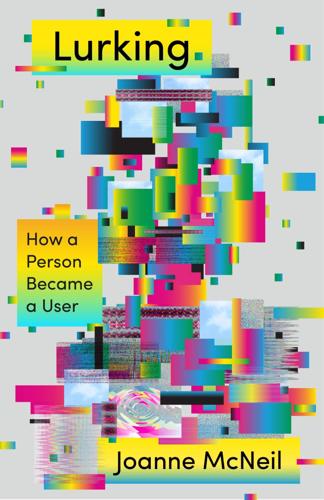
Lurking: How a Person Became a User
by
Joanne McNeil
Published 25 Feb 2020
The company strategy was to build accessible, attention-grabbing content so new users wouldn’t feel overwhelmed. The company’s target audience, Leonsis said, was the kind of person who might “run to the Hard Rock Cafe” once they arrived in a foreign country. The CEO’s comments confirmed all the suspicions of longtime internet users. “Eternal September”—a term that fittingly outlived Usenet—was coined in the fall of 1993, when AOL offered Usenet access to its users, disrupting countless communities; the influx never ceased, but continued to wreak havoc on various rec and alt groups. To them, AOL users were the fanny-pack masses, an invasion of the squares.
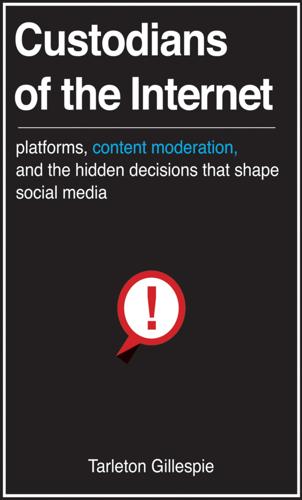
Custodians of the Internet: Platforms, Content Moderation, and the Hidden Decisions That Shape Social Media
by
Tarleton Gillespie
Published 25 Jun 2018
For others, the same awareness may fuel a political mission to knowingly impose cherished American values. 48Julia Angwin, Stealing MySpace, 64–65. 49Mathew Ingram, “Here’s Why Disney and Salesforce Dropped Their Bids for Twitter,” Fortune, http://fortune.com/2016/10/18/twitter-disney-salesforce/. 50Burgess, “From ‘Broadcast Yourself’ to ‘Follow Your Interests.’” 51Lessig, Remix. 52Tim O’Reilly, “What Is Web 2.0: Design Patterns and Business Models for the Next Generation of Software,” O’Reilly Media, September 30, 2005, http://www.oreilly.com/pub/a/web2/archive/what-is-web-20.html. 53boyd and Ellison, “Social Network Sites”; Beer, “Social Network(ing) Sites”; Ellison and boyd, “Sociality through Social Network Sites.” 54Gehl, Reverse Engineering Social Media; Baym, “Social Media and the Struggle for Society”; Hearn, “Verified”; Langlois and Elmer, “The Research Politics of Social Media Platforms.” 55Helmond, “The Platformization of the Web”; Plantin et al., “Infrastructure Studies Meet Platform Studies.” 56Alexis Madrigal, “The Perfect Technocracy: Facebook’s Attempt to Create Good Government for 900 Million People,” Atlantic, June 19, 2012, http://www.theatlantic.com/technology/archive/2012/06/the-perfect-technocracy-facebooks-attempt-to-create-good-government-for-900-million-people/258484/. 57Vaidhyanathan, The Googlization of Everything. 58Turner, From Counterculture to Cyberculture. 59Dibbell, “A Rape in Cyberspace”; Kraut and Resnick, Building Successful Online Communities. 60Personal interview. 61Platforms experience what is known as “eternal September.” In the days of Usenet, newsgroups tended to receive an influx of new members every September, when arriving college students got access to the web for the first time and were unfamiliar with the norms of the community. When, in 1993, AOL linked its users to the web, this problem of maintaining community norms in the face of new users became a constant.
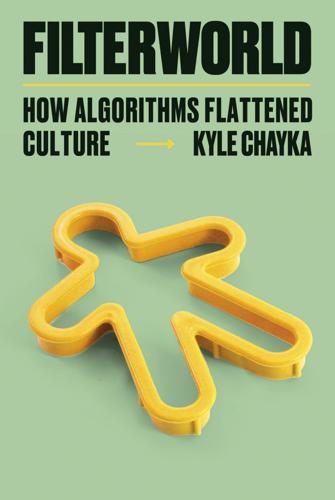
Filterworld: How Algorithms Flattened Culture
by
Kyle Chayka
Published 15 Jan 2024
Gradually the noobs—as my generation of Internet slang would put it—became overwhelming, annoying the veteran users. Corporations also began to offer access to Usenet over home dial-up connections. America Online (AOL) incorporated Usenet in 1993, and the sudden influx of noobs became known as “Eternal September.” The implication of the phrase was that the wrong kind of user was suddenly dominant in these once-niche groups. The digital landscape, the early version of digital culture, seemed to be ruined, though of course it persisted. AOL simplified the Internet into an easy menu of options, centralizing it for the peak of twenty-three million subscribers that it reached around the year 2000.
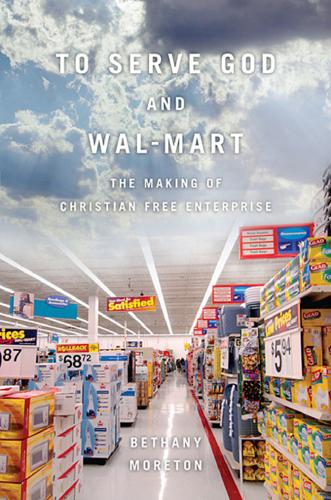
To Serve God and Wal-Mart: The Making of Christian Free Enterprise
by
Bethany Moreton
Published 15 May 2009
The quoted term Â�comes from Hochschild, The Second Shift, p.€12. 71. Bob Mumford, “Fatherpower,” New Wine Magazine, April 1978, 4–10. An audio version was circulated on cassettes beginning in 1977; Burks and Burks, Damaged Disciples, 122. 72. David Waterman, “The Care and Feeding of Growing Christians,” Eternity, September 1979, 16. 73. Joel A. Carpenter, Revive Us Again: The Reawakening of American Fundamentalism (New York: Oxford University Press, 1997), 306 n.17. 74. Bob Mumford, www.lifechangers.org/html2/about_bob.php, accessed August 24, 2006. 75. For example, Kent Marts, “Friends Remember Folksy Mr. Sam as Very Uncommon Common Man,” DR Special Commemorative Edition, April 5, 1992, 1, 6; Angel Hernandez, “Front Range Wal-Mart Workers Mourn Death of Boss and Friend,” Rocky Mountain News, April 6, 1992. 309 NOTES TO PAGES 117 – 1 2 0 76.
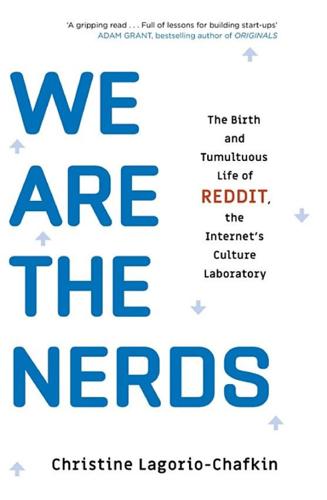
We Are the Nerds: The Birth and Tumultuous Life of Reddit, the Internet's Culture Laboratory
by
Christine Lagorio-Chafkin
Published 1 Oct 2018
Outside of school, they together took up ballroom dancing. The one aspect of Huffman’s Wakefield years that didn’t seem ripped from a Wes Anderson film was his deep love for computers. He’d been dabbling in programming since he was eight years old. His dad encouraged early web browsing by giving young Huffman access to AOL—before the “Eternal September” of 1993 when AOL opened up Usenet access and connected millions of new users to the Internet proper. Summers with his dad were time for offline engineering, too: He would roam the cul-de-sacs with buddies, find discarded appliances such as a lawn mower or a washing machine, and tinker with and repair them.